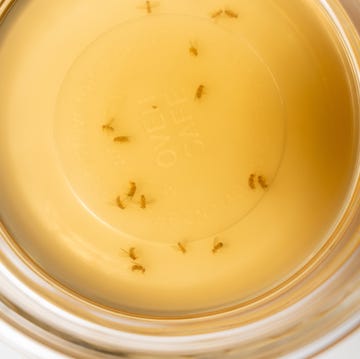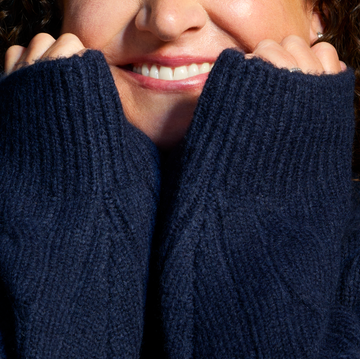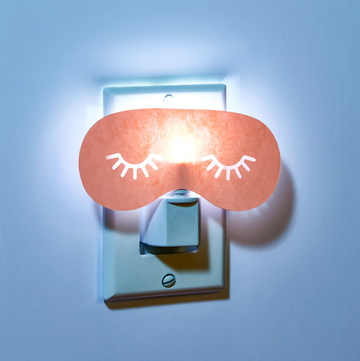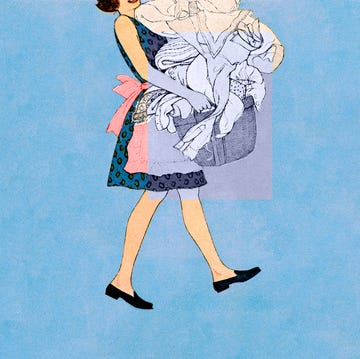1Paint
 Anna Efetova//Getty Images
Anna Efetova//Getty ImagesWhile it's not necessarily unsafe to store paint in the garage, high or low temperatures can affect the quality. "Paint shouldn’t go there, because temperature swings can degrade it," says Dan DiClerico, Director of the Home Improvement and Outdoor Lab in the Institute.
2Firewood
 aire images//Getty Images
aire images//Getty ImagesThe garage might seem like a good place to keep firewood safe from wet weather, but it can actually bring pests into your home if you don't thoroughly check it beforehand. Plus, without proper ventilation, mold and mildew could form on your firewood.
Advertisement - Continue Reading Below
3Gasoline
 GKV//Getty Images
GKV//Getty ImagesWhen stored in the garage, gasoline and propane tanks can become a potential fire hazard. "Gasoline is best kept in an outdoor shed. That’s because garages often have equipment with pilot lights, like a water heater. Vapors from stored fuel could react with the open flame and cause an explosion," says DiClerico.
RELATED: The Best Sheds for Every Backyard and Budget
4Electronics
 Oleksandra Vinogradova//Getty Images
Oleksandra Vinogradova//Getty ImagesElectronics should not be stored in a space that gets super cold in the winter or extremely hot in the summer. Because garages are not temperature controlled, they are not a safe space to store any sort of electronics.
Advertisement - Continue Reading Below
5Garbage
 NickyLloyd//Getty Images
NickyLloyd//Getty ImagesIf you keep your garbage in your garage, you could be attracting pests and critters without even knowing. Your trash is a rodent and insect magnet, especially when not properly sealed. DiClerico especially warns against keeping garbage in your garage if you park your car inside: "Mice are known to nest under car hoods, especially in colder months, when the engine keeps them warm."
6Books and Paper
 Olena Ruban//Getty Images
Olena Ruban//Getty ImagesPaper is affected by excess moisture, so if your garage experiences high humidity, it's best to keep all books and important papers inside the house. Not only could pages begin to curl, but they could also become moldy over time.
Advertisement - Continue Reading Below
7Pet Food
 da bali//Getty Images
da bali//Getty ImagesPet food doesn't only attract your dogs or cats — it can also attract critters from outside. Keep pet food in the kitchen with the rest of your food to avoid welcoming in any pests.
8Clothes and Other Linens
 Aleksandr Zubkov//Getty Images
Aleksandr Zubkov//Getty ImagesAvoid storing clothing, bedding, towels or any other fabrics in the garage. Insects like moths can actually eat through clothing, and humidity can cause mold to grow. Plus, you don't want any musty odors transferring onto your linens anyway.
RELATED: The Best Closet Organization Ideas
Advertisement - Continue Reading Below
9Photos and Art
 Gary Yeowell//Getty Images
Gary Yeowell//Getty ImagesSince most physical photos or pieces of artwork are one of a kind, you'll want to find a safe space for them. Like paper, photos and other artwork are susceptible to damage from pests and mildew.
10All Food
 cemagraphics//Getty Images
cemagraphics//Getty Images Advertisement - Continue Reading Below
11Oily Rags
 SaevichMikalai//Getty Images
SaevichMikalai//Getty ImagesRefrain from leaving any oily rags in the garage — they could catch fire, according to DiClerico. "After working on the car in the garage or doing a DIY project that involves an oil-based wood finish, you might be tempted to leave behind a pile of oily rags. Don’t! The oxidation process can result in temperatures that are high enough for the oil to spontaneously combust, causing the risk of serious fire," he says.

Laura Millar (she/her) is the assistant lifestyle editor for Good Housekeeping, where she covers home design. Prior to joining Good Housekeeping in 2024, she wrote for NBC's TODAY.com, where she covered everything from entertainment news to pop culture updates.
Advertisement - Continue Reading Below
Advertisement - Continue Reading Below
Advertisement - Continue Reading Below
























